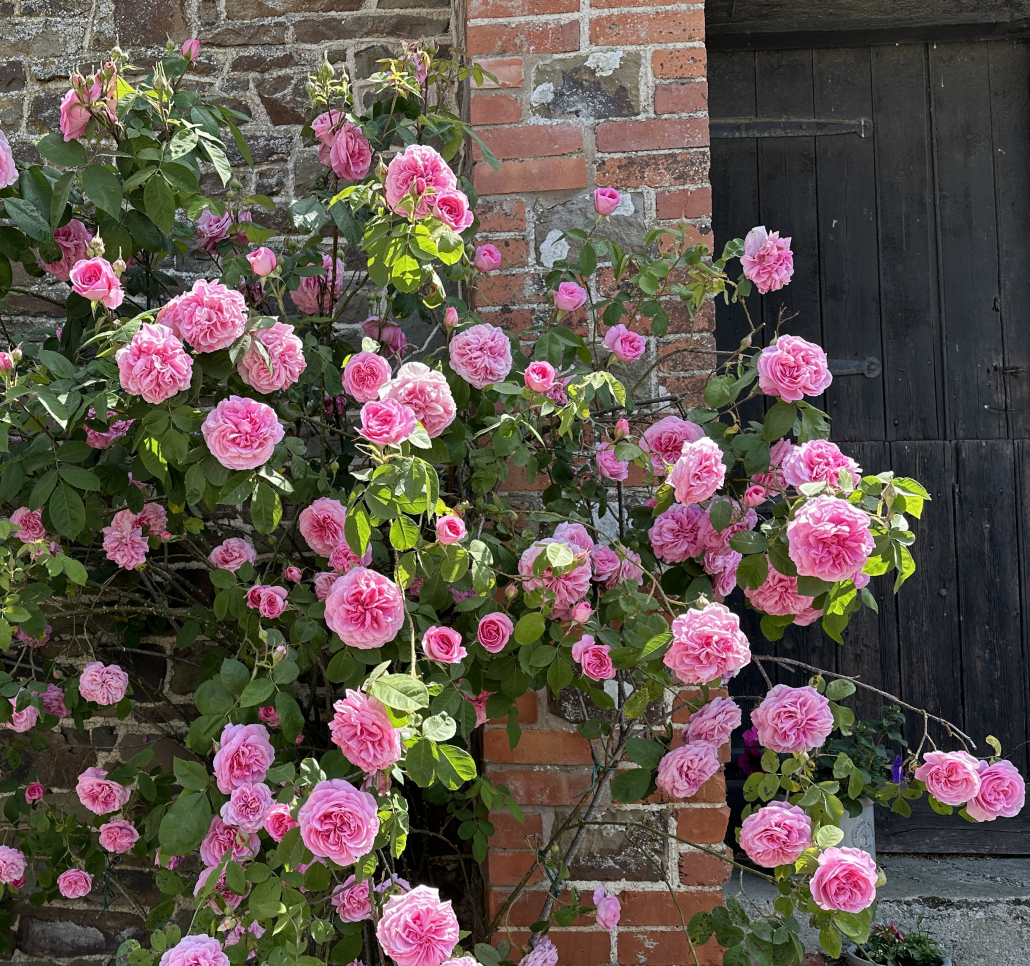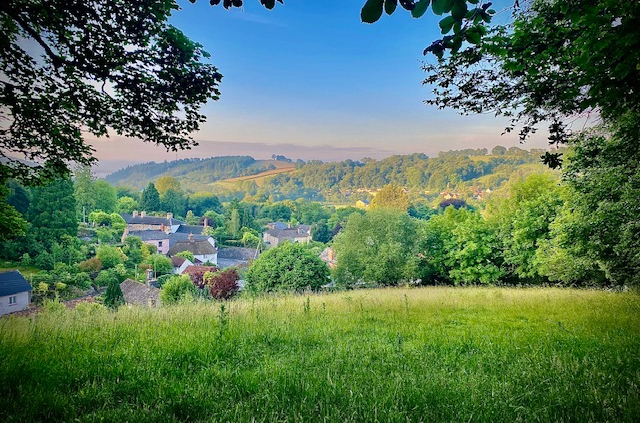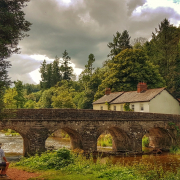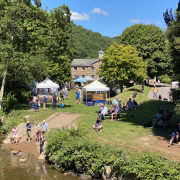Dulverton’s Secret Gardens contribute to major Exmoor appeal!
The ‘Secret Gardens of Dulverton’ day on 2 July was a great success and Visit Dulverton is delighted to announce that profits from the garden visitors and cake sales have meant that a generous donation has been made to Exmoor National Park’s CareMoor charity. Ten private gardens were especially opened for the day across the pretty moorland town of Dulverton and visitors were treated to unusual plants, summer colour and careful landscaping – and tea and cakes in the Town Hall of course!
Christine Dubery, Chair of Dulverton Town Council, was keen for any profits from the day to be made as a charitable donation to a local relevant cause. After discussion with the Visit Dulverton team and with the ten garden owners themselves, a donation of £1000 was made to Exmoor National Park’s CareMoor ‘Sowing the Seeds Appeal’. Christine said: “We are delighted to have been able to give back to our local community in this way – and our huge thanks to the owners of the ten gardens for kindly opening their gardens and making this a possibility. We look forward to opening more of Dulverton’s ‘secret’ gardens to visitors next summer.”

Katrina Munro, ENPA’s Sustainable Economy Officer said: “Thank you so much for the donation from the Open Gardens to our Sowing the Seeds Appeal. It will help with the purchase of a new piece of specialist equipment required and the setting up of a wildflower seed nursery on ENPA land at Exford”.
The ENP website explains that meadows attract a multitude of wildlife and often support flora and fauna that cannot thrive in other habitats. Typically characterised by species such as black knapweed, ox-eye daisy, yellow rattle, hawkbits, vetches and rarer orchids, they can also support colourful waxcap fungi with names such as parrot, snowy and crimson. In addition to being aesthetically beautiful, they are ecologically important as they provide areas for pollinating insects, nesting, food gathering, shelter and even animal courtship displays.
Like other ecosystems, meadows experience increased pressure due to climate change, especially as precipitation and weather conditions change. However, grasslands and meadows also have an important climate change mitigation potential as carbon sinks; deep-rooted grasses store a substantial amount of carbon in soil.
The ENPA have been running informative sessions about the creation of wildflower meadows, one of which was attended by Visit Dulverton volunteer Ken Warren who said: “The session in Simonsbath included a presentation on how to convert grassland, whether a garden lawn or many acres, into a wildflower meadow. We were shown a brush harvester which is used to collect fresh seed from existing wildflower meadows. That seed is then used to sow potential new meadows. We then walked to nearby land where many, many acres of wildflower meadows have been created. To see meadows as some of us might remember them was a privilege and a memorable experience.”
For more information on the Sowing the Seeds Appeal visit: ENPA CareMoor Sowing the Seeds Appeal
Main image by Emma How of Dulverton – one of four Highly Commended photographs entered into the 2022 Dulverton Photographic Competition.









